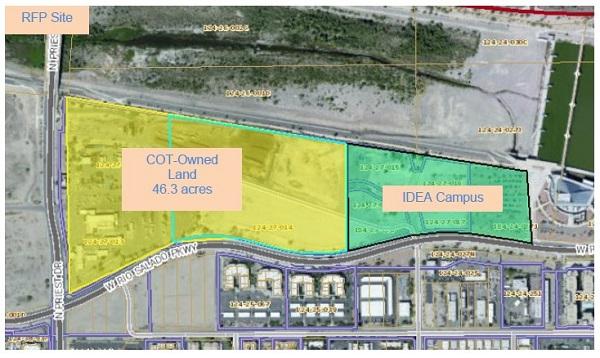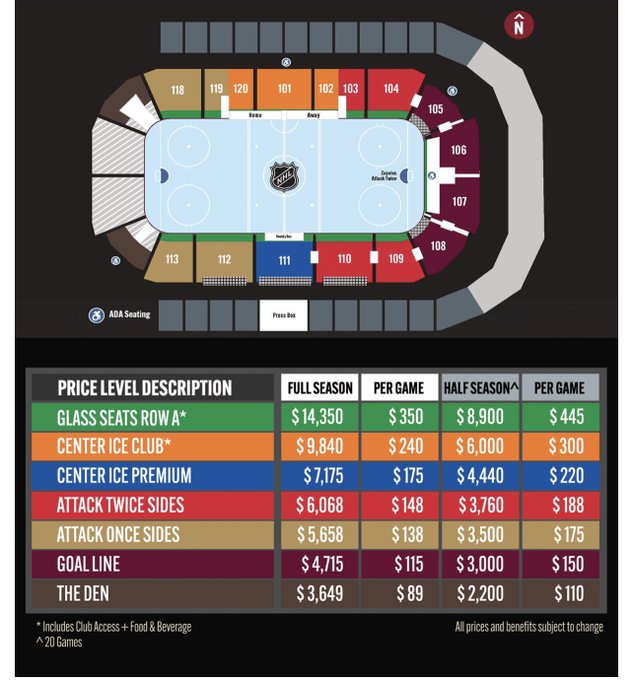© 2026 ALLCITY Network Inc.
All rights reserved.

Arizona State University has had discussions with the Coyotes about using the NHL team’s proposed 16,000-seat arena as the new home for its men’s and women’s basketball teams, multiple sources familiar with the situation confirmed. Further interest from ASU would naturally be contingent upon the Coyotes getting approval from the Tempe City Council to build the arena and its surrounding entertainment district.
The Coyotes declined comment when reached by PHNX Sports on Wednesday.
ASU’s basketball teams currently play at Desert Financial Arena, which was built in 1974. Vice President for University Athletics Ray Anderson recently told Arizona Sports that renovating the facility would be a top priority for the school now that construction of a multi-purpose facility to house hockey, wrestling and gymnastics is nearing completion, but with the Coyotes footing the bill for a new arena and its surrounding entertainment district at an estimated price of $1.7 billion, ASU could have an easy solution just west of campus.
Desert Financial Arena is not the Pac-12’s oldest arena, but it has long been viewed as a deterrent to recruiting. Despite a facelift for the bowl that provided some cosmetic upgrades, the team areas in the guts of the building are severely dated and in need of improvement.

The seating capacity of 16,000 at the Coyotes’ proposed arena would be too large for either ASU’s men’s or women’s basketball programs, given their recent average attendance marks, but modern arenas often include retractable barriers for the upper levels to reduce capacity, improve acoustics and eliminate bad optics of an arena looking half full.
On the plus side, partnering again with the Coyotes could spare ASU a major bill (the multi-purpose arena cost $115 million) and give it a first-class basketball facility. The arena could also serve as an early-round or regional host for the NCAA’s men’s and women’s basketball tournaments, putting college fans and players within easy reach of one of the nation’s largest universities and all of its amenities.
On Sept. 2, the City of Tempe reported that the Coyotes were the only group to submit a proposal in response to its request for proposals for a project incorporating a professional sports franchise and entertainment district for two parcels of city-owned land totaling 46 acres at the northeast corner of Priest Drive and Rio Salado Parkway. The site, which is located on the south bank of the Salt River, previously was used as a sand and gravel mining operation and a dump.

On Wednesday, the site experienced a mulch fire that was contained with no injuries reported.
The Tempe City Council has not voted on the Coyotes’ proposal, but the council discussed it in executive session on April 7. Recent elections brought two new members to the council who will be seated in July. Multiple sources have told PHNX Sports that a decision on the Coyotes’ proposal is expected while the current council is seated, but no hard deadlines have been set. While there was some speculation that a vote could occur at the council’s April 28 meeting, that no longer appears likely.
After the executive session, the City of Tempe released a statement outlining the ongoing process that read as follows:
The Tempe City Council has directed city staff to work with the entity proposing to build a professional hockey arena, hotels, offices, retail and residential near Town Lake to seek clarification on specific points of their proposal. The Council’s direction came last night in a closed session allowed by state law.
Tempe issued a Request for Proposals (RFP) in July 2021 for a development incorporating a professional sports franchise and entertainment district on 46 acres of city land at the northeast corner of Priest Drive and Rio Salado Parkway. In September, Bluebird LLC was the sole respondent. City staff and consultants have been evaluating the proposal for its economic impacts, public benefit and other factors. That due diligence is continuing.
No details can be shared publicly at this time about the aspects of the proposal that need clarification in the Council’s view. That is because these matters may be part of confidential negotiations in the future, if the Council formally accepts the proposal at a later date. Acceptance of the proposal has not yet occurred.
While multiple reports recently have warned of potential issues with Sky Harbor International Airport, two sources familiar with the situation said that the airport is not a significant sticking point for the city. Despite that opinion, another source suggested that there is some effort from opposition to reject the RFP in executive session, rather than discussing it in a public forum.
“I think there is a good chance it never comes to a public meeting or vote,” the source said. “This likely will die in the dark without the public ever knowing what the real proposal was.”
When asked about ASU possibly using the proposed arena for its basketball programs, the same source said: “If ASU wants this deal they should speak up now. It will be too late soon.”
Another source, however, said that a decision to reject the RFP in private is unlikely, suggesting that it would reflect poorly on Tempe Mayor Corey Woods if the council opted to kill the proposal in secrecy after publicly requesting that same proposal.
The Coyotes have already reached an agreement with ASU to use the university’s new multi-purpose facility as their temporary home while they await word from the city council. The deal calls for the Coyotes to play at least three years in the facility with options for additional seasons if construction of the new arena takes longer than hoped.
The Coyotes sent out an email to season ticket holders on Wednesday outlining the pricing for tickets in an all-premium-seat setting. Coyotes President & CEO Xavier Gutierrez discussed ticket pricing and much more in an exclusive Q&A with PHNX Sports in March.

Viewed in the context of the larger arena, it makes sense that ASU was willing to partner with the Coyotes temporarily at the multi-purpose facility. Aside from the $19.7 million annex and additional improvements that the Coyotes are adding that ASU will get to keep, the university will keep parking revenue and enjoy the free marketing that comes with NHL hockey being played in an arena that has all sorts of ASU branding.
If the Coyotes also offer ASU a solution to its basketball problem, it could remove a major concern from the athletic department’s desk.
Follow Craig Morgan on Twitter
Comments
Share your thoughts
Join the conversation



